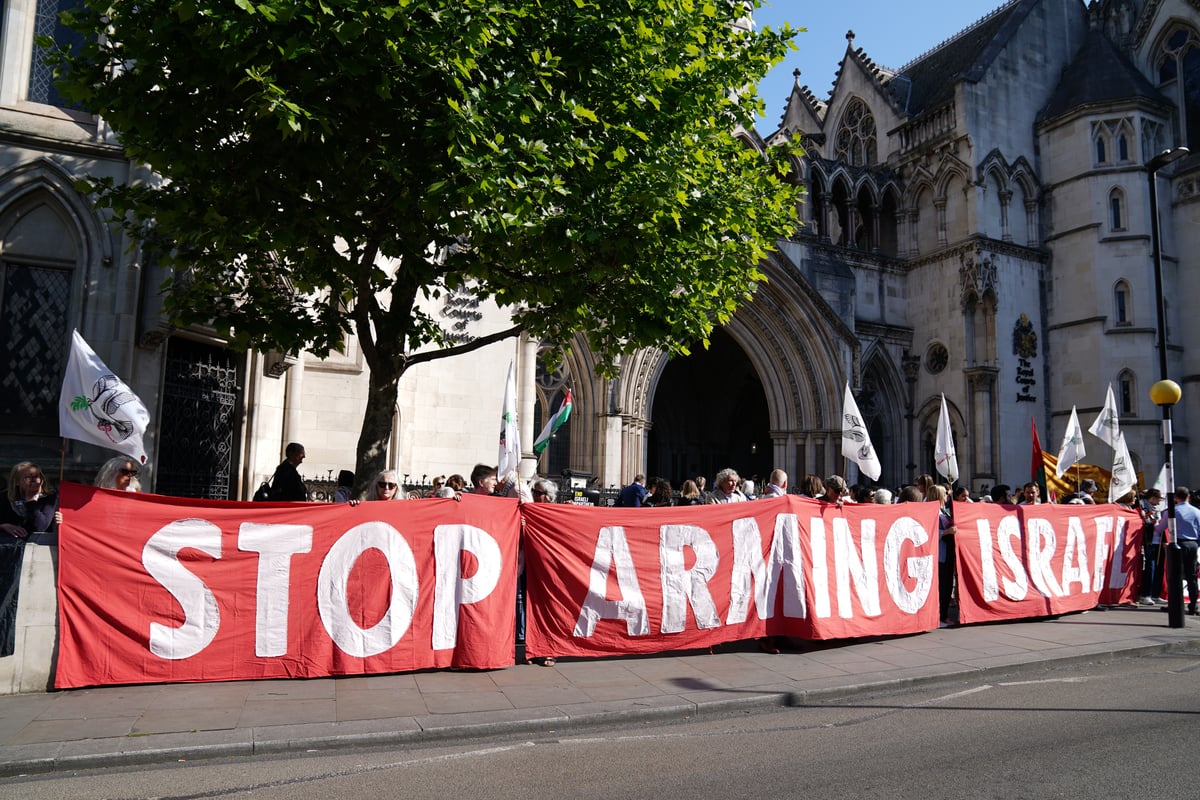A Palestinian human rights group will discover on Monday whether it has won a legal challenge against the Government over decisions related to exports of military equipment to Israel amid the conflict in Gaza.
Al-Haq is taking legal action against the Department for Business and Trade (DBT) over its decision to continue licensing exports of components for F-35 fighter jets.
In September last year, the Government suspended export licences for weapons and military equipment following a review of Israel’s compliance with international humanitarian law in the conflict.
But an exemption was made for some licences related to parts for F-35s, with lawyers for Al-Haq telling the High Court in May that this “carve-out” was unlawful and “gives rise to a significant risk of facilitating crime”.
The DBT is defending the challenge, with its barristers telling a four-day hearing in London that the carve-out is “consistent with the rules of international law” and that suspending the licences would negatively impact a wider international programme.
Lord Justice Males and Mrs Justice Steyn are due to hand down their ruling at 10.30am on Monday.
At the hearing at the Royal Courts of Justice, Raza Husain KC, for Al-Haq, said the case came “against the backdrop of human calamity” in Gaza, describing the conflict as a “live-streamed genocide”.
In written submissions, he said that the Government misunderstood relevant parts of the Geneva Conventions when there was a clear risk that the parts might be used to commit or facilitate violations of international humanitarian law by Israel.
F-35s are part of an international defence programme which produces and maintains the fighter jets, with the UK contributing components for both assembly lines and an international pool.
An earlier hearing in the case was told that the decision to “carve out” licences related to F-35 components followed advice from Defence Secretary John Healey, who said a suspension would impact the “whole F-35 programme” and have a “profound impact on international peace and security”.
In written submissions for the May hearing, Sir James Eadie KC, for the Government, said that this “provided justification to take exceptional measures to avoid these impacts and was consistent with the UK’s domestic and international legal obligations”.
He continued that some of Al-Haq’s criticisms “are not based on a balanced appreciation of the facts” and did not consider “the true depth and range of the information-gathering and analysis” by the Government when it made the decision.
Charities Oxfam and Amnesty International, as well as Human Rights Watch, all intervened in the case.
